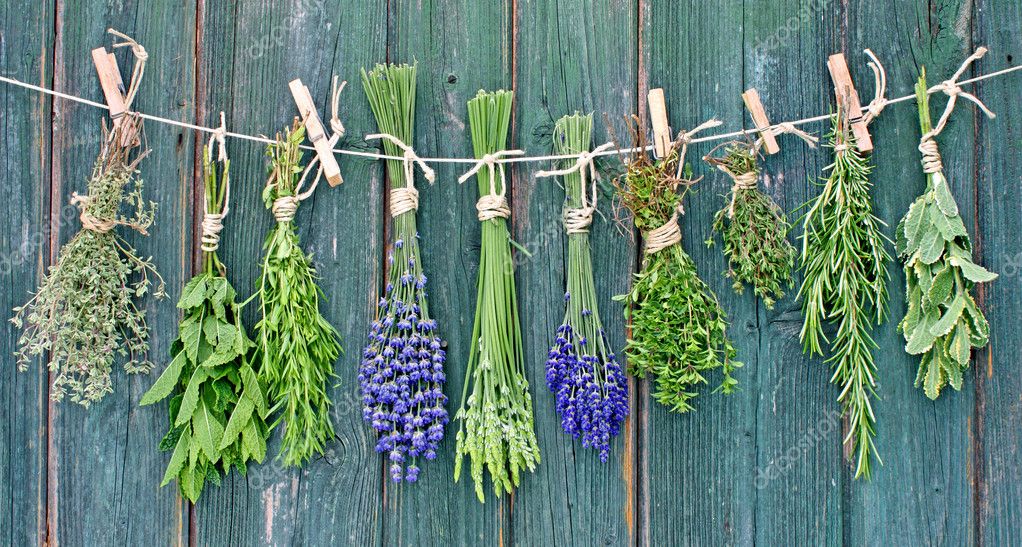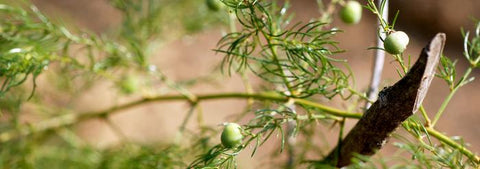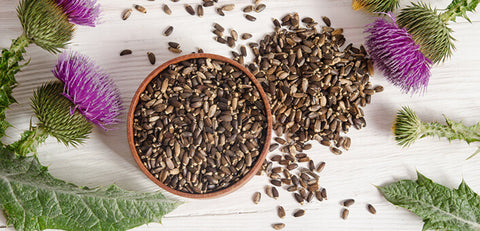
10 herbs that can promote milk production
10 herbs that will increase milk production in new moms
New mothers always worry about whether they have enough milk. It's a common anxiety, so we've compiled a list for new moms of the top ten herbs that are proven to promote milk production. Some of these herbs not only promote milk production, but can increase your sense of well being and calm anxiety, relax your muscles (important for the milk 'let down' reflex) and ease colic in your baby.
1. Fenugreek

Fenugreek seeds steeped in water (preferably for 8-24 hours) then drained, to make a tea, which is then sipped throughout the day can help keep you hydrated. But the chief benefit of imbibing tea made from these stone-like seeds is to your breast milk production volume. Drinking tea made from the seeds can increase your milk volume within 24-48 hours, and regular use will help keep your milk production steady and productive.
Fenugreek has long held the lead as a galactagogue (a herb, food, drug, which promotes milk production). Known for being a detoxifier, trigonella foenum-graecum (fenugreek) works by promoting sweating, and it's thought that since the breasts are glands, it works to produce more milk by increasing secretion in all your body's glands.
2. Shatavari

Wild asparagus, or Shatavari, is found in sub-continental India, where it grows in the upper reaches of rocky, soil in the hills and mountains of Nepal, Sri Lanka and the Himalayas.
Traditional midwives and Ayurvedic practitioners have advocated its use for centuries as a galactagogue for nursing mothers. Now that it is more widely available in the west, Shatavari is being prescribed to stimulate milk production in breastfeeding mothers.
Traditionally it is made into a herbal ghee, but more modern, urban mothers may prefer taking a supplement orally as a tablet, powder, or liquid essence dropped on the tongue.
3. Fennel

Use it in salads from sliced bulbs, or made into a tea or infusion from the seeds. Popular for a variety of digestive complaints, it is also used to reduce colic and digestive distress in babies. Babies can be given a few sips of this carminative in their bottle, and a mother drinking the tea can transmit some of the compounds though her breast milk, feeding her baby nutrients and a digestive aid at the same time. ThePostNatal Plus is a great source found Here.
4. Goat’s rue

Goat’s rue (Galega officinalis) is a highly recommended herb which has been used by traditional midwives and modern lactation consultants alike. One of its unusual properties is its ability to increase breast tissue generally. The compounds in the plant have the effect of growing more breast tissue and it is used for women who have had breast surgery, as well as new mother's in the early stages of breastfeeding to increase breast tissue volume, while your milk supply is still building, and therefore works to increase milk supply as well.
Available as a supplement in capsule form, it can also be made from an infusion of dried leaves and drunken as a tea.
5. Hops

The tradition of drinking beer to increase milk supply may be out of vogue these days, but contains some truth to the advice. True, because of the hops contained in beer. While exposing a baby to alcohol, even the small percent which filters though to the mammary glands is never recommended, finding other sources of hops to ingest will increase your milk supply by increasing your prolactin levels, which is needed to make more milk.
The hop plant of the genus Humulus is a non-woody annual or perennial vine belonging to the hemp family (Cannabaceae) native to temperate North America, Eurasia, and South America.
6. Alfalfa

Using alfalfa for increasing milk production comes from traditional tales, but there is nutritional evidence to support this.
Alfalfa (Medicago sativa) is a common plant from the pea family and alfalfa has been cultivated as crops since the ancient Greek and Roman civilizations. Alfalfa sprouts and seeds are highly nutritious, so add it to your food, or brew a tea infused from dried alfalfa leaves.
7. Blessed Thistle

Blessed thistle is known for its diuretic properties, and like many other diuretics such as fennel, and fenugreek, is also highly recommended for its milk production effects.
While there is not much science behind the belief, it is an all too common ingredient found in commercially prepared supplements designed specifically for supporting milk production in lactating women. It is often prepared along with fennel and fenugreek in milk promoting supplements.
8. Brewer's yeast

So popular for increasing milk production and widely accepted as a galactagogue, brewer's yeast is cheaply and widely available. Many lactation consultants and old wives’ tales recommend this very old B-vitamin source for increasing milk supply.
This nutritional supplement contains iron, protein and many B vitamins, as well as selenium, chromium and other trace materials. It has been claimed by many moms and grannies as a 'food' that helps promote milk production.
9. Anise

Anise makes our list of galactogogues as its milk promoting effects are held up by science, and it is often included in some proprietary mixtures that promote an increase in milk supply.
Anise (Pimpinella anisum) seeds contain anethole, which is a phytoestrogen, and therefore has a stimulating effect on many reproductive organs and tissues.
10. Ginger

Ginger may not, strictly speaking, be a herb, but its wide use as a lactogenic food earns it a place on this list. The action of ginger in the body helps 'letdown' and flow, promoting easy milk release. Breastfeeding mothers can consume ginger as part of their diet in meals, in teas or as a refreshing and hydrating ginger ale.
Ginger is:
- an anti-inflammatory
- relieves muscle pain
- is a carminative and settles the stomach
- helps regulate blood sugar
- prevents heart disease and cancer
- reduces risk of diabetes in pregnancy
With all these benefits, add it to your lactogenic (milk producing) diet without hesitation. The muscle relief and calming effects of the plant, whether fresh, or in powder form, will benefit you generally.
This list of the 10 best milk promoting foods should mostly be a pleasure to include in your diet. We recommend adding these food to your meals as often as you can, and combining a few of them in a salad can't hurt your efforts to produce more milk either. You can also sit back and relax and take Nursing & Lactation Plus which does all the work for you.
